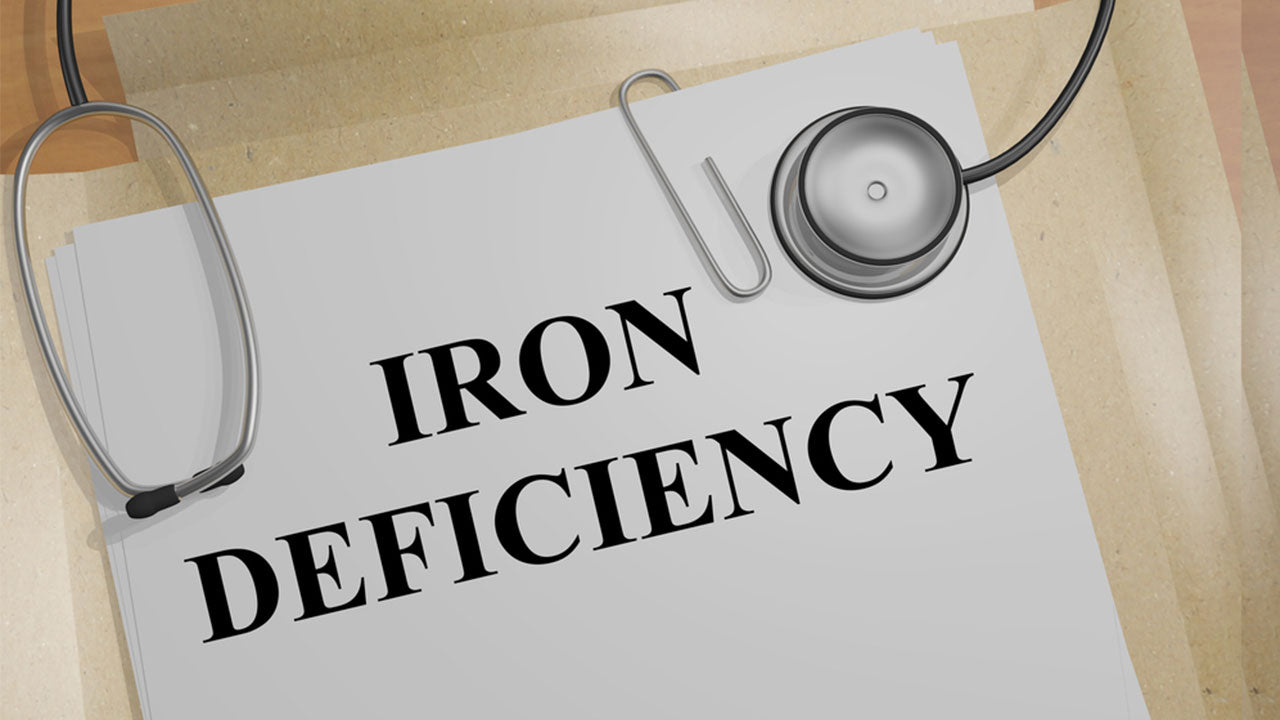5 Signs of Amino Acid Deficiency and How to Treat It
 By: by Amino Science
By: by Amino Science

You probably know that between 60% and 70% of the average human body is composed of water. But did you know that protein makes up approximately 66% of the non-water components of your body? As you may remember from biology class, amino acids form the building blocks of protein. In the same way that it’s vital to drink water to stay hydrated, it’s also absolutely necessary to provide our bodies with an ongoing supply of amino acids to make up for those used up rebuilding our tissues and carrying out other important bodily functions. Without an adequate intake of amino-rich foods, you’re likely to develop an amino acid deficiency.
Amino acid deficiency often gets overlooked, and when left untreated it makes it more likely you’ll develop a whole host of serious disorders. In this article, we’ll go over some basic facts about amino acids and then share five signs of amino acid deficiency as well as how to correct amino acid deficiency.
What Are Amino Acids?
Scientists have found that when we select food, our first instinctive priority is to meet our short-term energy needs. And right behind that comes the maintenance of our essential amino acids balance. When you eat food that contains protein, your body then breaks it down in order to access and utilize the amino acids.
Amino acids carry out a wide variety of vital functions inside the human body, from building muscles to generating neurotransmitters like dopamine. We need a steady supply of a balanced ratio of amino acids to maintain optimal levels inside our bodies. When we’re under stress, or dealing with illness or injury, we require an even higher intake to meet the increased demand.
There are 20 proteinogenic amino acids—”proteinogenic” means “protein creating,” and as you might be able to intuit, these amino acids form all biological proteins and all contribute to our overall health and well-being in different ways. For instance, research reveals that leucine, isoleucine, and valine, the three branched-chain amino acids (BCAAs), work to build and repair muscle tissue. While there’s understandably a great deal of interest in determining the role of each individual amino acid, it’s important to keep in mind that they can only carry out those roles effectively when the proper balance and concentration of all the amino acids is in place.
Eleven of the proteinogenic amino acids are deemed nonessential. Since your body can produce these nonessential amino acids, it’s not essential that you derive them from your diet. The nonessential amino acids are alanine, arginine, asparagine, aspartic acid, cysteine, glutamic acid, glutamine, glycine, proline, serine, and tyrosine.
The remaining nine are essential amino acids that you must obtain either from the food you eat or supplements you take since your body cannot independently create them. The essential amino acids are histidine, isoleucine, leucine, lysine, methionine, phenylalanine, threonine, tryptophan, and valine.
Some amino acids are considered conditionally essential. This category can be a bit confusing. Basically, when everything is going smoothly, your body can make these amino acids on its own without any difficulty. But if your health is compromised in some way, for instance, if your liver is functioning less than ideally, that can get in the way of amino acid synthesis. Poor diet can also cause problems, since certain minerals and vitamins play important roles in the amino acid creation process. Under those circumstances, your body can greatly benefit from an increased intake of the seven conditionally essential amino acids: arginine, cysteine, glutamine, glycine, proline, serine, and tyrosine.

How Do Amino Acids Work?
As we touched on in the previous section, amino acids do not work in isolation. It’s true that each has a specific function, but simply increasing your intake of one particular amino acid will not necessarily make that function happen more efficiently.
Take arginine. Research shows that arginine stimulates the production of nitric oxide, a signaling molecule that’s especially important for vasodilation. In simple terms, nitric oxide allows the inner muscles of your blood vessels to relax, which improves your circulation. You might think that the best way to boost your nitric oxide levels would be to take more arginine. But studies make it clear that taking arginine supplements doesn’t lead to significantly increased arginine concentrations. What’s more effective is to increase your intake of citrulline, which your body then converts to arginine your body can readily use for nitric oxide production and other purposes.
As you can see, amino acids work together to maintain your health and well-being. It’s very rare to develop a deficiency of just one amino acid. The most effective strategy is to focus on keeping your amino acid levels in balance by eating a protein-rich diet and supplementing with well-formulated amino acid supplements if necessary.
5 Signs of Amino Acid Deficiency

1. Muscle Loss
Our bodies have systems in place to compensate for a lack of dietary amino acid intake. One of the first things that happens is the breakdown of muscle tissues, which are assembled from amino acids. Amino acids are then sent where they’re most needed, for instance, to maintain heart function. As you may be able to guess, eating away at your muscle to fuel your heart is not a sustainable strategy and can have serious consequences.
No matter what, some degree of muscle loss, often (incorrectly) called sarcopenia, will accompany the aging process. A lack of amino acids, however, speeds up that process, which can begin as early as your 30s.
2. Increased Anxiety and Depression
There’s an intimate connection between your amino acid intake and your mental health. We rely on amino acids to produce brain chemicals like serotonin that balance our moods and emotions.
Tryptophan, an essential amino acid, is a precursor to serotonin. When serotonin levels drop, symptoms of depression increase. A 2016 study found that without an adequate supply of tryptophan, serotonin production is compromised, which can, in turn, compromise your mental health.
3. Difficulty Concentrating
If you’re feeling unmotivated, struggling to concentrate, finding it difficult to learn new information, or dealing with “brain fog,” you may have low amino acid levels. As we touched on above, you need amino acids to produce neurotransmitters like serotonin and dopamine.
Without enough tyrosine, a conditionally essential amino acid, your brain struggles to produce dopamine. And without enough dopamine, your energy levels will flag and your overall cognitive function will decline.
4. Digestive Disturbances
In order for the digestive system to operate smoothly, we need a balanced intake of amino acids, which play crucial roles in enzyme production as well as muscle contractions in your gastrointestinal tract.
Amino acids have such a pronounced impact on digestion that they may even be used to treat certain gut-related diseases, according to a study.
5. Slowed Healing Time
Amino acids help our muscles recover from exertion, maintain the strength of our bones, and keep our immune systems running at peak capacity.
A 2009 study showed that amino acids help bone fractures heal more quickly, and findings published in the British Journal of Nutrition show that a deficiency in amino acids impairs immune function and increases your susceptibility to illness.
The Best Way to Correct Amino Acid Deficiency
Once you’ve realized you have an amino acid deficiency, there’s likely only one question on your mind: how to correct an amino acid deficiency. To stabilize your amino acid levels, you need to increase the amount of amino acids you’re consuming. It can be difficult to do this in a balanced way through diet alone, especially if you aren’t inclined to eat a diet high in animal protein.
And balance is absolutely key. The amino acid that we consume the least of, proportionate to recommended consumption levels, determines the degree to which our bodies can utilize the rest of the amino acids we take in.
Essential amino acid (EAA) supplements can help to fill any gaps you might have in your diet. If you’re already experiencing any of the signs of amino acid deficiency listed above, it can be highly beneficial to augment your amino acid intake with a high-quality EAA supplement.
The Amino Company is dedicate to developing the highest quality EAA blends for your targeted health needs: muscle health, liver health, kidney health, heart health, immune system health, weight loss, mental health, and energy. To protect against or correct an amino acid deficiency, shop Amino Co EAAs today.

Up to 25% off Amino
Shop NowTAGS: conditions natural cures
Join the Community
Comments (0)
Most Craveable Recipes




 833-264-6620
833-264-6620



















